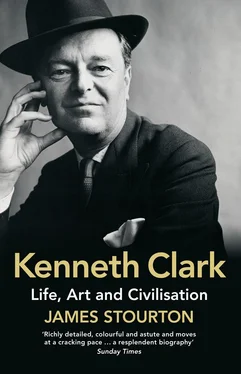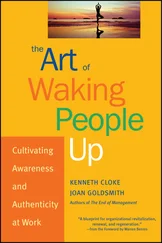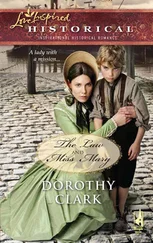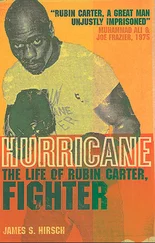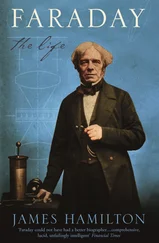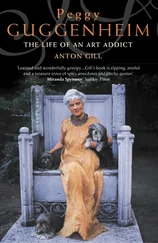Clark’s parents had few connections with the local social life of the county set. One of these was the Suffolk Show, at which his father would show his pigs and his prize collection of Suffolk Punch draught horses. These beautiful animals had their own special stables at Sudbourne, and would be brought out every Sunday morning and paraded on the lawn in front of the house before trotting home ‘as complacent as Morris dancers’.16 The main stables at the side of the house were refitted to hold the collection of motor cars: a Rolls-Royce, two Delaunay-Bellevilles and a Panhard, ‘a quiet, insinuating electric car which had been intended for use in London’.
Clark senior was a well-intentioned if unconventional landlord, who built a cottage hospital in nearby Orford and allowed Coronation sports at the hall in 1911. His main preoccupation, however, was the pheasant shoot from October until the end of January; the Sudbourne shoot was one of very high numbers and low-flying birds. At first the young Clark enjoyed the shooting parties because they brought female visitors to the house, whom he would persuade to come to his bedroom for a beauty parade of their dresses, which he would judge with care and precision, evincing the first signs of the emerging aesthete. Then at the age of ten Clark had a gun placed into his hands, and we have the recollection of Phyllis Ellis, a young girl on the estate, that ‘Young Kenneth used to get very upset when all these birds were brought in – pheasants and ducks. They looked so beautiful in their winter plumage … He didn’t like shooting – which, of course, annoyed his father.’17 Sometimes as many as a thousand birds a day were shot, which sickened young Kenneth. He gave up shooting as early as he could – Phyllis tells us that after a time ‘he would never go out with the shooting parties’.18 Since this sport was the main point of Sudbourne, young Clark’s reaction was particularly distressing to his father, and this is the earliest external evidence that Kenneth was not going to be a conventional boy of his background. Apart from the shoot, Sudbourne boasted a private cricket pitch and a fourteen-hole golf course, complete with a professional. Clark’s father was too impatient to play a proper round of golf, but in his irresponsible way would encourage visitors to try to hit a ball over the house, causing the inevitable broken windows, which delighted him and pained his son. Phyllis Ellis reported that Alice Clark ‘when alone would play golf on the private 14-hole course with the gamekeeper’s wife’. She cuts a rather lonely figure.
One day when Clark was six his mother came to the nursery and caught his German governess scolding him. The governess was sent away the next morning and replaced by a Highland Scots woman, Miss Lamont, thereafter always known as ‘Lam’. Lam was the daughter of a minister from Skye, but was not at all dour; she was a great giggler, with a naughty sense of humour, and above all she was affectionate and full of unsentimental goodness. Clark adored her, and for the first time he encountered uncritical love. ‘The arrival of Lam,’ he wrote, ‘was the first of several pieces of human good fortune which have befallen me in my life.’19 He always claimed that Lam saved him: ‘At last I had someone whom I could love and depend on, and who even seemed to share my interests.’20 Lam became his protector and companion. This remarkable woman spoke four languages, never married, and ended up, thanks to Clark’s recommendation, as the housekeeper at Chequers, where she once remarked on the similarity between Clark senior and Mr Churchill.
At the end of January, when the shooting season was over, the Clark household would move by wagon-lit to the south of France, where one of the pleasure yachts would have sailed from the Clyde to await them in the harbour at Monte Carlo. His father loved the casino, but his mother found Monaco too socially demanding, and preferred the quieter pleasures of nearby Menton. One day a French woman who had joined them for lunch on the Katoomba expressed the wish to own a yacht of such beauty. Clark senior saw his chance, and named an enormous price, which to everyone’s surprise she accepted. The Clarks left their yacht the following day, and with the money Clark senior acquired a parcel of land near Menton on Cap Martin, where he employed the Danish architect Hans-Georg Tersling to build – using Scottish labour – a sturdy wedding cake of a villa in which the family would stay for three months of every year. Clark senior would gamble all day at the tables, where according to his son he had extraordinary luck that would fund extravagant purchases. *The Menton casino also put on early-evening shows for children, with conjurors, jugglers, acrobats, comedians and stuntmen, and through these entertainers the young Clark developed a desire to become an actor; he loved showing off his newly learned skills to his rather bored mother and her friends. In France, his mother’s only occupation seems to have been directing the head gardener, who returned during the summer months to his native Pitlochry.
Clark claimed to have had no childhood friends on the Riviera, but Isobel Somerville, the daughter of the English vicar at Menton, remembers playing rounders with him; she also recalls his passion for parsley sandwiches. She was captivated by Lam, with her compassion, her sense of the ridiculous and her exhortations to her charge – ‘Kenneth, don’t be silly.’ She remembers Lam bringing ‘her fabulously rich employers to Menton, each in turn. When she went to the Churchills, because we got no gossip whatever out of her, we changed her name into “Damn-clam-Lam”.’21
Perhaps the first indication of Clark’s remarkable gift for engaging the affection of distinguished friends and mentors is his improbable attachment to the Empress Eugénie, the elderly widow of Napoleon III, a neighbour who would allow him to accompany her as she took her morning walks. Otherwise the rather sedate life of the Riviera was punctuated for the small boy with carnivals and flower festivals which brought colour and a welcome vulgarity.
When his parents left Menton in April for a cure at Carlsbad or Vichy, young Clark would be sent back to Sudbourne – which was a mixed pleasure. With his parents away he found himself looked after by resentful servants, whom he accused in his memoirs of taking out their malice on him by serving him rotten food. *
But there were also enormous compensations to life at Sudbourne. His favourite room was the library, the heart of the house, still filled with books left by the previous owner. Clark learned to read late, from an illustrated manual called Reading Without Tears in which each letter was represented by a pictogram. He read all the standard Edwardian children’s classics, but claimed that one series of books ‘influenced my character more than anything I have read since’. This was the illustrated adventures of ‘Golliwogg’ by Florence and Bertha Upton.22 Golliwogg, as Clark explained, lives on terms of perfect happiness with five girls. He always treats them with the greatest courtesy, and they share his adventures. Their role is to admire him, and when things go wrong they rescue and console him. ‘He was for me an example of chivalry far more persuasive than the unconvincing Knights of the Arthurian legend,’ wrote Clark, who added the frank admission, ‘I identify myself with him completely and have never quite ceased to do so.’23 Indeed, he was to spend the second half of his life enjoying carefully managed relationships with a number of women at the same time, and their role would be to appreciate and console him in a not dissimilar fashion.
Meanwhile in his nursery the solitary Clark enjoyed constructing elaborate Classical buildings with his bricks, and putting on performances with his circus figures à la Menton . ‘When my parents departed for Cap Martin and Vichy, I was left to my own devices,’ he wrote. ‘I was an only child and should have felt lonely, but in fact I do not remember suffering any inconvenience from solitude. On the contrary, I remember with fear and loathing the rare occasions when some well-wishing grown-up arranged for me to meet companions of my own age.’24 When other children did appear he found that he had little in common with them. Nor did he expect them to share his interests, thus nurturing a personal exceptionalism from an early age. He rejoiced when they left, and ‘returned with relief to my bears, my bricks, or at a later date, my billiard table’.25 All his life he would be pleased when guests had departed, and he believed that his early solitude ‘made me absolutely incapable of any collective activity. I cannot belong to a group.’26 He tended to exaggerate this point: in fact he was to demonstrate an unending capacity for collegiate activity by serving on numerous committees throughout his career, from the war onwards. His solitary childhood did make him shy – except with grown-ups – but it also helped to develop his sensitive perception of works of art.
Читать дальше
